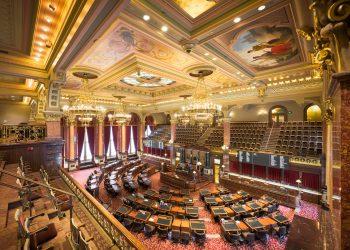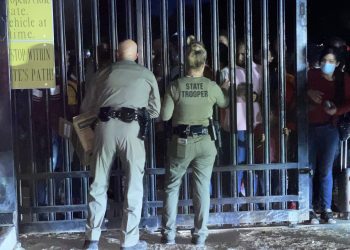Imagine being a young family that is currently living in a home that is too small for your growing and thriving family. You have finally reached a financial place where you’re able to buy a bigger house and so on Sunday, you decide to check out several open houses in your community. You find the perfect house for you and your family, and you’re excited about the possibilities of the future. You talk to the realtor and make an offer on this perfect house for you and your family, only to find out that the owner will not sell this house to you because of who you are. They don’t give an actual reason for this intentional discrimination, they just say that you cannot buy it.
This is what’s happening in multiple school districts around the state of Iowa after the legislature passed an expansive school choice bill last year. The new Educational Savings Account (ESA) bill created a new demand for higher capacity for many schools.Several parent groups, private schools, and communities saw opportunities for expanding educational freedom. These groups saw vacant school buildings or about to be vacant school buildings as opportunities for educating their children. But when they inquired or made formal offers to purchase the vacant buildings, they were simply voted against or denied the opportunity to even bid on the buildings because of who they are.
What kind of homeowner would restrict certain people from buying their house? The answer is the kind of homeowner that is fearful, narrow minded, and prejudiced. What kind of community would restrict certain groups from purchasing vacant school buildings? The answer would be a community that is fearful, myopic, and doesn’t care about educating all of its children.
The governor and the Iowa legislature have put forth several bills to address this issue. These bills are meant to increase educational capacity, educational freedom, and educational opportunities in thriving communities around the state. The bills simply say that superintendents or school boards cannot restrict other educational entities from putting offers on vacant buildings and should give them the first opportunity to buy the vacant buildings. The spirit of these bills puts forth the idea that all communities should have a goal of wanting to educate all of their children in a variety of ways. This makes perfect sense, right? Don’t we want to educate all of our children to the best we possibly can? Sadly, this is not the case in some communities around the state.
During the past several years in discussing the school choice issue, proponents have offered multiple studies and research to show how more educational options actually improves the quality of communities and the quality of the current public schools. Inspired Life has shown on multiple occasions how public schools gain financially every time a student in their system chooses an ESA, specifically that public school gains an extra $1200 per student, along with keeping all its local property tax dollars previously designated for that student. So, to be clear, when an entity loses its main cost element but gains dollars, there is no possible way for that entity to lose out financially. That is what currently happens with the Iowa ESA law. Public schools no longer have the student to teach, but they gain dollars from that student to use for the remaining students.
If this is true, and it is, then why would any community not want more students, more families using ESA dollars, coming to their towns, growing the economy, growing the tax base, creating competition that makes public schools better, and improving lives and freedom?
The answer would be superintendents and school boards who are fearful, prejudiced, and only prioritize protecting a system that puts union administrator jobs ahead of educating kids.
Let’s stop the discrimination and prejudice in our communities and pass HF 2543 and SF 2368! These bills are about growing our communities, growing our families, growing educational freedom, improving public and private schools around the state, and getting Iowa back to being #1.
















